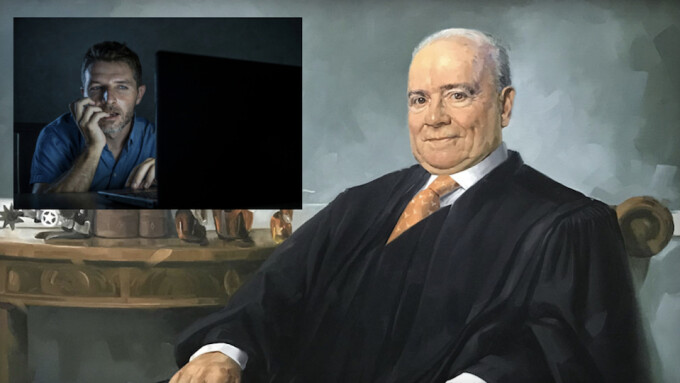WASHINGTON — A three-judge panel at the D.C. Circuit court ruled yesterday in favor of Strike 3 Holdings’ appeal, allowing them to be granted subpoenas in copyright cases they were filing. This reversed a lower-court ruling where a judge had taken the unusual step of lambasting the adult entertainment company for the nature of its content.
As XBIZ reported after a March hearing, this outcome was expected after several questions posed by the judges — concerning the right of Strike 3 Holdings to obtain the names of people they believe to be infringing their copyrights via Bit Torrent — challenged the lower court's decision against the adult production company, pointing to language that appeared to indicate bias against pornographic content.
Strike 3 Holdings is the company that produces and markets adult films under the umbrella Vixen Media Group, including popular studios Tushy, Blacked, Vixen and Deeper.
Arguing for Strike 3 was its longtime litigator for copyright infringement, Los Angeles attorney Lincoln Bandlaw.
Porn Weighed Heavily
Strike 3 was looking to overturn the peculiar November 2018 ruling by Judge Royce C. Lamberth, which dismissed the company's request to obtain the identity of an alleged copyright infringer. Judge Lamberth lambasted the company and Bandlaw as "copyright trolls" and used a number of phrases that appeared to indicate that his ruling was colored by a disdain for nature of the plaintiff's content.
"Imagine having your name and reputation publicly — and permanently — connected to websites like Tushy and Blacked Raw. Google them at your own risk," Lamberth wrote in his 2018 decision. "How would an improperly accused defendant’s spouse react? His or her boss? The head of the local neighborhood watch? The risks of a false accusation are real; the consequences are hard to overstate and even harder to undo."
The alleged infringer "may not be entitled to the same presumption of innocence a criminal defendant enjoys," Lamberth continued, "but the Court remains uncomfortable publicly presupposing defendant partook in particularly prurient pornography given defendant’s tenuous connection to the infringement."
Back in March, one of the judges asked Mr. Lloyd, the court-appointed amicus who was tasked with arguing in favor of Judge Lamberth's decision, to explain why Lamberth "seemed to weigh very heavily" that Strike 3 makes pornographic content.
Lamberth's seeming fixation with "porn sites" and the "embarrassment" that being on record as a consumer of adult content might produce was probed by the panel.
One of the other judges asked Lloyd if he thought it "wouldn't be a troubling line" of argument to factor "social judgments about the worth of the content being infringed" into a copyright infringement decision.
"What if it was violent content?" the judge asked. "Would [Lamberth have decided] the same thing?"
Abuse of Discretion
Yesterday, as reported by legal news site Law360, the appeals court panel decided that Lamberth "should not have given so much weight to the company's many other lawsuits."
U.S. Circuit Judge Neomi Rao wrote that, in the Strike 3 case, where "a plaintiff alleges that it is the victim of copyright infringement on a massive scale, the mere fact that it has filed a significant number of lawsuits is not a valid basis on which to impute an improper purpose," nor is "the fact that many such lawsuits settle or are dismissed at an early stage necessarily suggestive of improper intent."
Speaking about Lamberth’s claims about the "aberrantly salacious nature" of Strike 3's content, Rao wrote that "the protections afforded by copyright law do not turn on a copyright holder's popularity or perceived respectability."
"The district court abused its discretion by factoring the pornographic content of Strike 3's films into its decision," Rao concluded.






